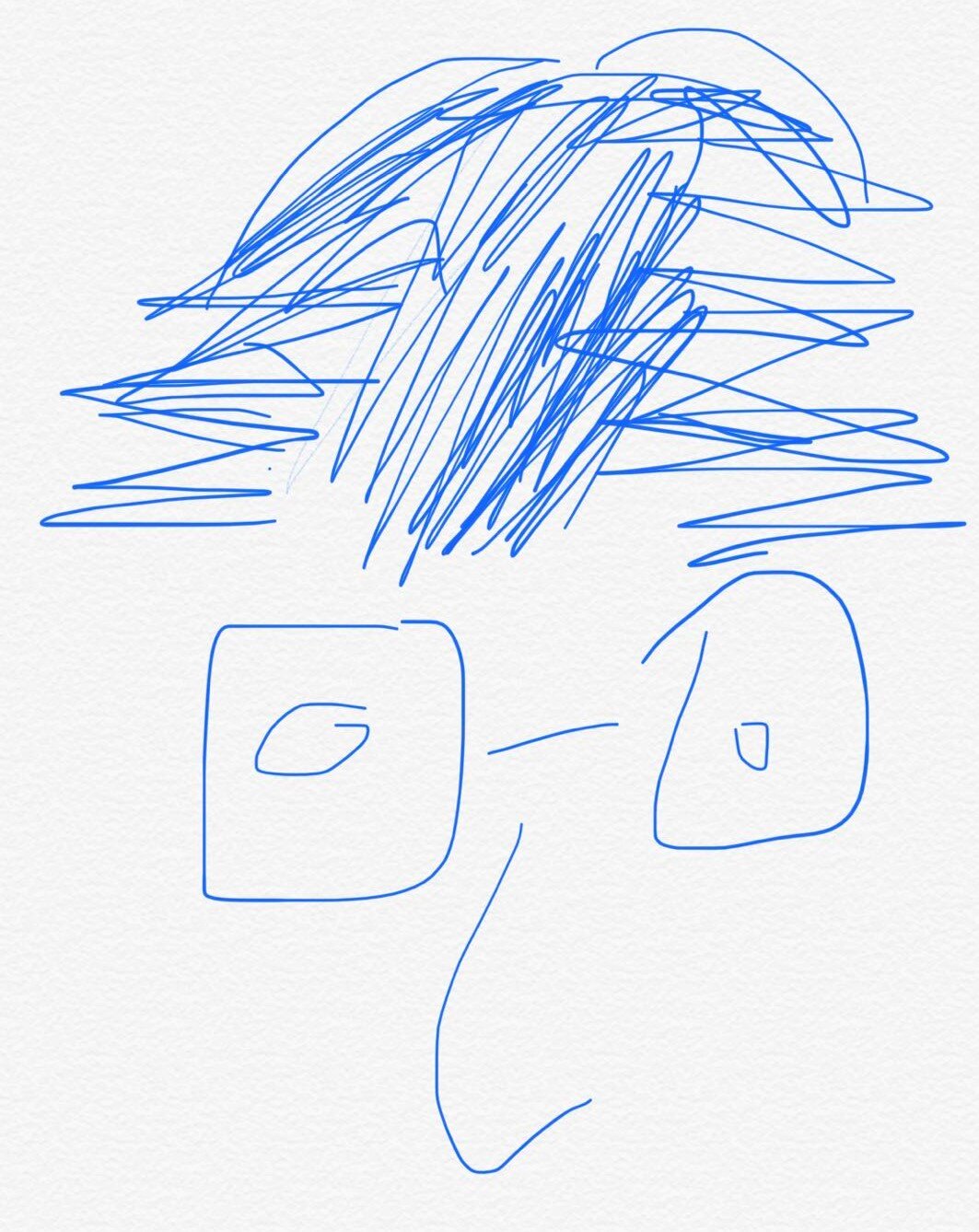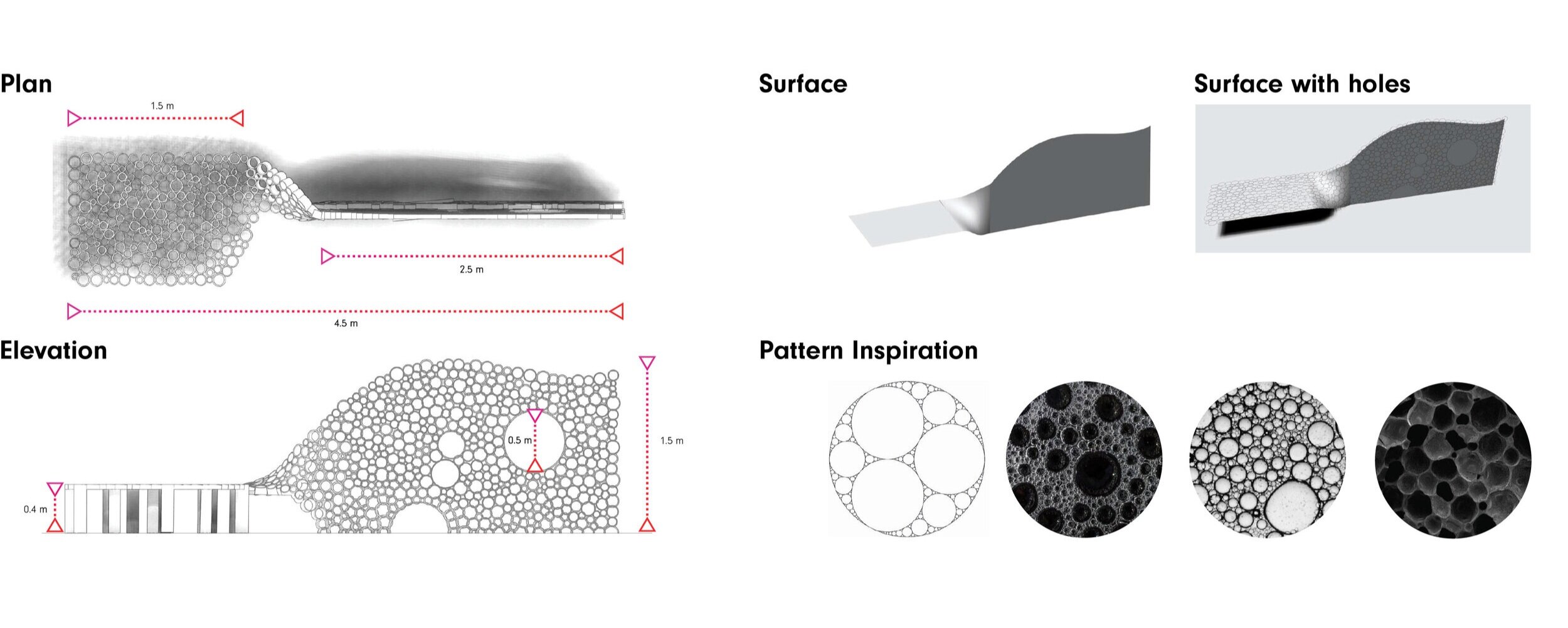
Lost and Fun
Duration_ Oct.2018-Dec.2018
Collaborator_ Giulia Grassi
Technical Support_ WASP Hub Milan
Award_ Design Competition Expo Dubai 2020 Connecting Space
Lost & Fun is a 3D printed interactive furniture composed of a bench and a wall where children can play while waiting for their parents.
Where is my child? Where are my parents?
Every year lots of children get lost in mega events such as Expo. The aim of this project is to create a piece of furniture which incorporates a safety device for lost kids and funny elements to entertain them. The design is easy reproducible through 3D printing, the Lost & Fun wall can be replicated in many Expo areas. The project includes a bracelet with a QR-code and an app for smartphones.
The structure consists of a singular surface, just like a ribbon the mesh twists in order to ensure the transition from horizontal to vertical surface.
In geometry, circle packing is the study of the arrangement of circles (of equal or varying sizes) on a given surface such that all circles touch one another. The script generated in Grasshopper enabled to apply this pattern to the surface. The phenomenon of circle packing natural exists in bubbles or cells.
Documentation of the algorithm
1. The first thing to consider is the constraint. Because it would affect the production and the interaction with children.
2. After defined the constraints, compute the force inside the surface. 3. The shape then was extruded based on the curves.
Fabrication technique
FDM (fused deposition modelling) is one of the most common 3D printing techniques. It is based on the ‘layer by layer’ material extrusion, usually thermoplastic polymers, trough a nozzle.
Cylinders will be printed through a clay printer. Fibers, colors, finish can be chosen among many possibilities.
General plan of fabrication
In this case the overall structure has been divided in 22 panels with dimensions that can vary but perfectly fits the printer plate. Besides the two panels linking the bench and the wall, the other 20 panels are flat and will not need any support.
This allows to reduce timing, costs and waste. Each panel is connected to the other through a really simple interlocking system based on threaded bars and nuts, the system is self-bearing, being much heavier at the bottom.




